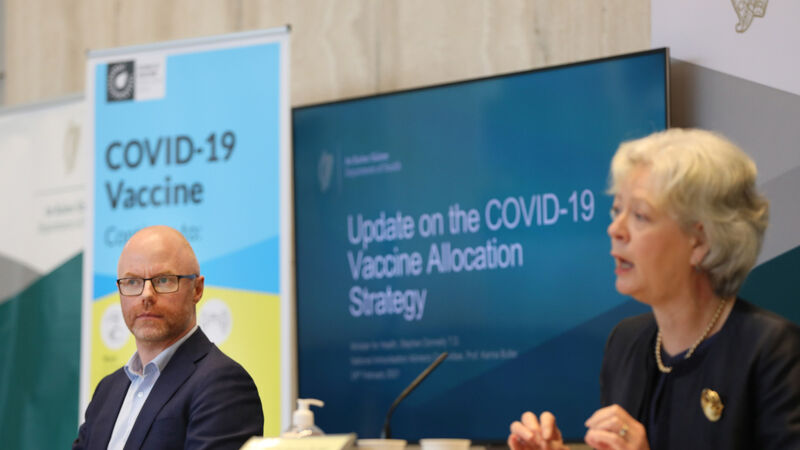Michael Clifford: Suspending vaccine down to fear of blame

Prof Karina Butler, chair of the National Immunisation Advisory Committee, with Health Minister Stephen Donnelly at a briefing earlier this year. File picture: Leah Farrell/RollingNews.ie
Character emerges when under pressure.
The good, the bad, and the ugly of what we are makes itself known when the chips are down. So it was last Sunday when a decision was taken to suspend the use of the AstraZeneca vaccine.












